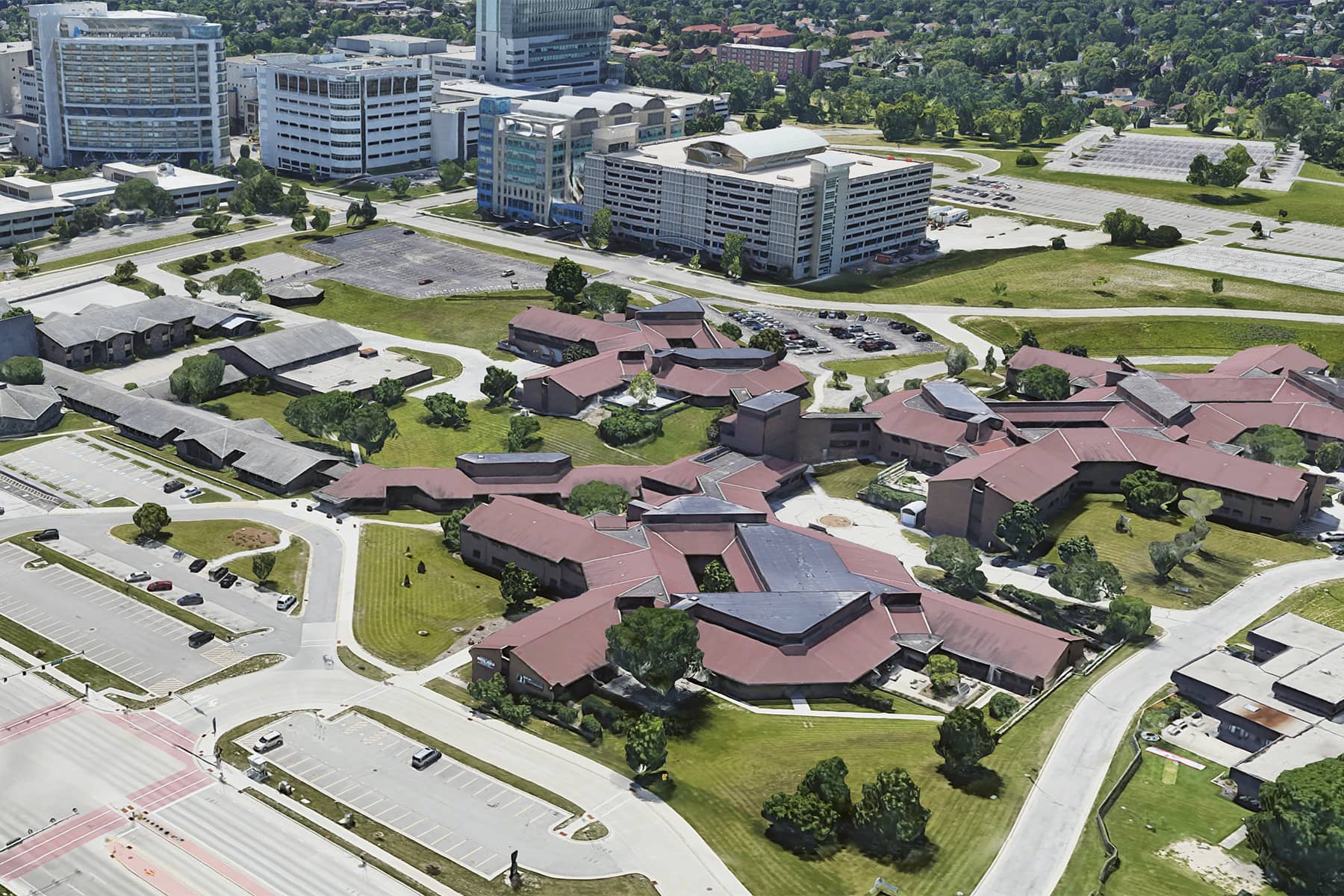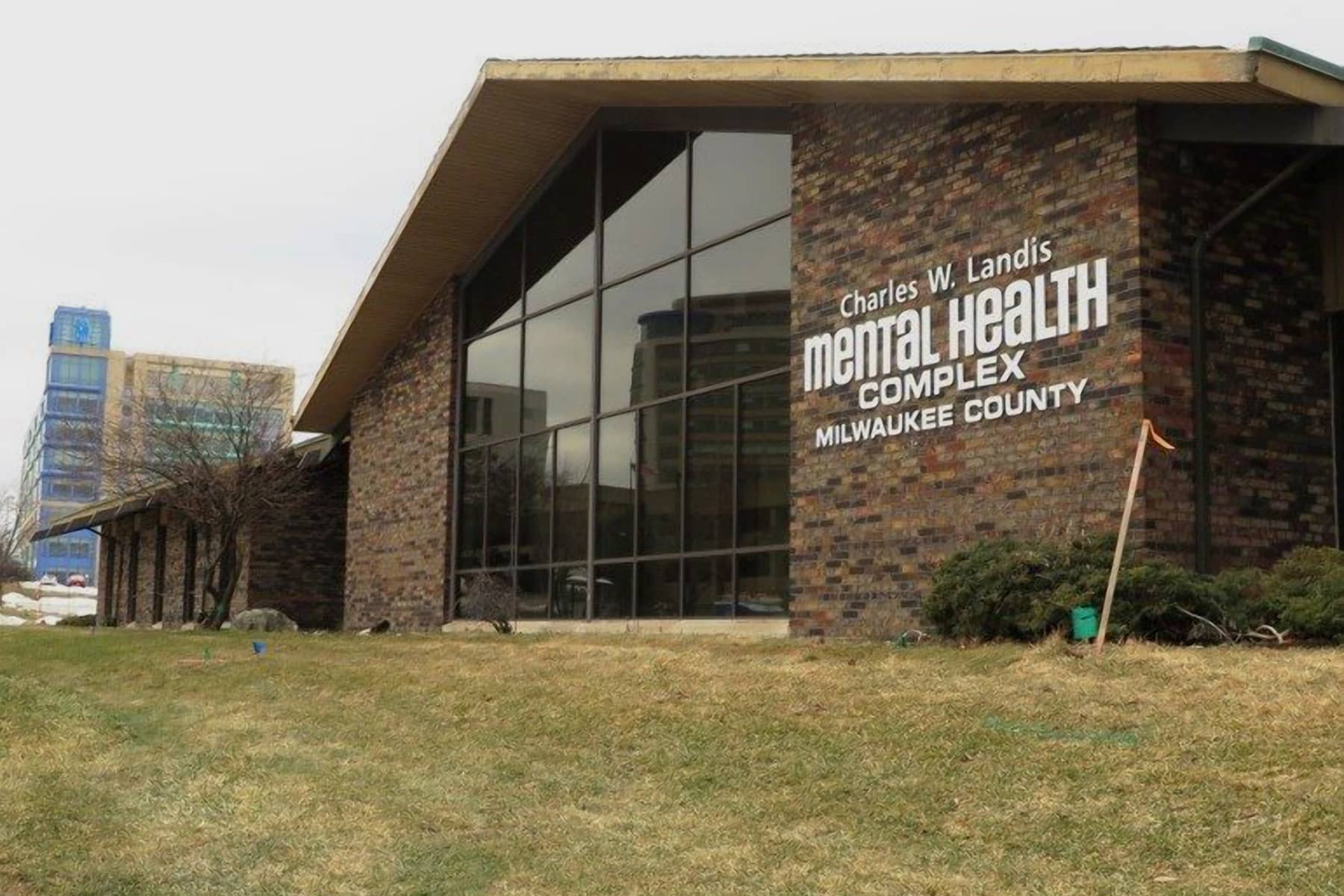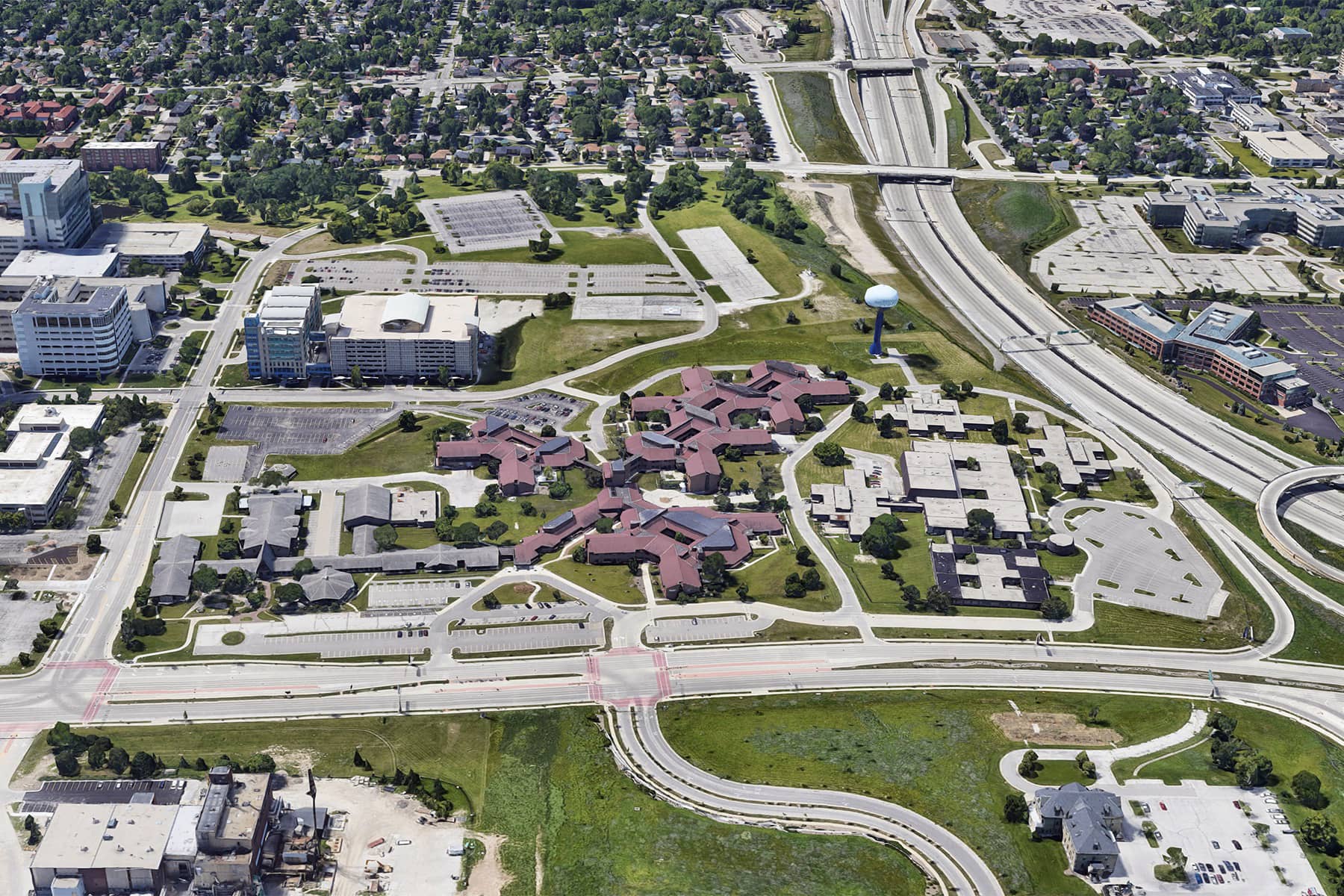
The Milwaukee County Department of Health and Human Services (DHHS) and Behavioral Health Services (BHS) announced on August 15 that the Milwaukee County Mental Health Complex and Psychiatric Crisis Services (PCS), located for more than 40 years at 9455 W. Watertown Plank Road in Wauwatosa, would permanently close its doors September 9.
Services would be transitioned to the new Mental Health Emergency Center, Granite Hills Hospital, and other community-based services. The highly anticipated transition to the state-of-the-art Mental Health Emergency Center marks the next phase in the redesign of Milwaukee County’s behavioral health system, which began more than a decade ago.
Significant developments include the newly-opened Granite Hills Hospital, an acute behavioral health care facility located at 1706 S. 68th Street in West Allis, and transitioning services to community partnerships, located in neighborhoods with the greatest need.
This new model creates easier access to care, the expansion of crisis services and now the Mental Health Emergency Center, opening September 6 at 1525 N. 12th Street in Milwaukee, a historic public-private partnership between Milwaukee County and the area’s four health systems–Advocate Aurora Health, Ascension Wisconsin, Children’s Wisconsin and Froedtert Health.
“After a decade of research, community input and redesign, we are reaching the next milestone in transitioning to a national best practice model of behavioral health care,” said Milwaukee County Executive David Crowley. “The redesign focused on improving access to behavioral health services and quality care in our most underserved and vulnerable communities. This is a major development in demonstrating our commitment to achieving racial and health equity and becoming the healthiest county in Wisconsin.”
Community leaders, advocates, individuals with lived experience, stakeholders and the Milwaukee Mental Health Board contributed to the redesign process, including the transformation to a community-based system of care that is less reliant on psychiatric inpatient admissions and emergency room visits.
Milwaukee County residents can now access several community-based locations for behavioral health and crisis services in neighborhoods across the county as well as through crisis mobile response teams.
“The system redesign is part of our commitment to ensuring there is ‘No Wrong Door’ for Milwaukee County residents who want to access behavioral health services,” said Shakita LaGrant-McClain, Director, Milwaukee County Department of Health and Human Services (DHHS). The goal of No Wrong Door is to serve people across their lifespan with high quality care that promotes dignity, regardless of age, race, gender or socio-economic status, with services tailored to the individual.
“‘No Wrong Door’ means that Milwaukee County residents who access one DHHS program or service can get connected to all DHHS programs and services as well as services across the continuum of care, creating easier access to quality care and assuring the care and services are driven by the person seeking help,” LaGrant-McClain added.
Over the past 10 years the redesign has reached many important milestones, including Act 203 and the creation of the Milwaukee County Mental Health Board in 2014, partnership with the Milwaukee Police Department to create Crisis Assessment Response Teams (CART) to bring psychiatric crisis services to people in the community, creation of the non-police Crisis Mobile Teams (CMT), development of Team Connect which provides timely follow-up services for individuals discharged from the hospital, and establishment of Crisis Resource Centers in 2007 leading to a total of 37 beds for three locations.
“If you look back through the history of behavioral health services in Milwaukee County, it’s truly amazing. We are on the cutting-edge of providing easily accessible, culturally-competent behavioral health services, which move away from inpatient and institutional care to a system based on national best practices that meet people where they are. This includes streamlined services, better access and emphasis on proven practices like holistic and trauma-informed care, stigma reduction and racial equity,” said Michael Lappen, Behavioral Health Services (BHS) Administrator.
Community Input Shapes New System of Behavioral Health Care
Milwaukee County has provided inpatient behavioral health services for more than 100 years. The soon-to-be-closed Mental Health Complex was built in 1978 to care for individuals with mental illness who, at that time, were expected to permanently reside in this facility. Since that time, best practices in care and laws have changed.
Today, the Mental Health Complex is out of date, impacting service and patients. Recognition of this spurred BHS to begin reimagining the county’s behavioral health system in 2010, with input from national experts and residents. In 2020, BHS launched an inclusive series of community conversations to shed light on challenges Milwaukee residents faced accessing behavioral health services.
Overwhelmingly, residents and those with lived experience stated they wanted services closer to where they live. The feedback also pinpointed gaps and barriers across behavioral health programs and services that are being addressed with the redesign.
“The closure of the Mental Health Complex follows several years of careful analysis, planning and public-private cooperation and shows that Milwaukee County has made tremendous progress toward its goal of transforming the behavioral health system,” said Rob Henken, President of the nonpartisan Wisconsin Policy Forum. “The transition to a community-based model of care offers residents better access to the services they need in settings that are most conducive to recovery.”
The Forum’s 2010 report on mental health redesign, co-authored by the Massachusetts-based Human Services Research Institute, spurred the redesign process. Subsequent reports provide further technical assistance and guidance.
The redesign of the behavioral health system in Milwaukee County is a journey. While there is work ahead, collectively, BHS has achieved tremendous successes.
The Behavioral Health Services (BHS) provides care and treatment to adults, children, and adolescents with mental illness, substance use disorders, and intellectual disabilities through both county-operated programs and contracts with community agencies.
© Image
GооglеMаps and Milwaukee County
















